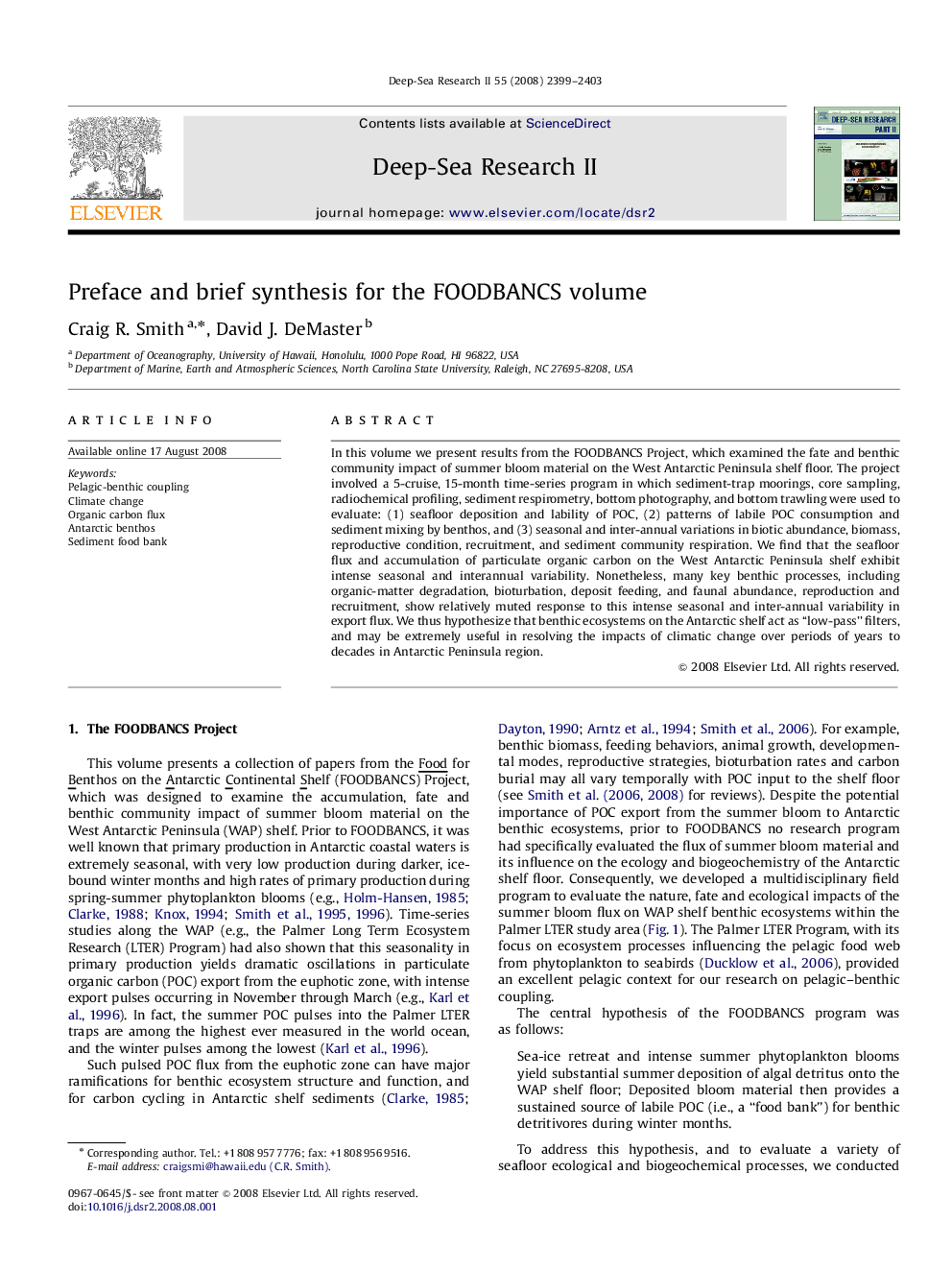| Article ID | Journal | Published Year | Pages | File Type |
|---|---|---|---|---|
| 4537905 | Deep Sea Research Part II: Topical Studies in Oceanography | 2008 | 5 Pages |
Abstract
In this volume we present results from the FOODBANCS Project, which examined the fate and benthic community impact of summer bloom material on the West Antarctic Peninsula shelf floor. The project involved a 5-cruise, 15-month time-series program in which sediment-trap moorings, core sampling, radiochemical profiling, sediment respirometry, bottom photography, and bottom trawling were used to evaluate: (1) seafloor deposition and lability of POC, (2) patterns of labile POC consumption and sediment mixing by benthos, and (3) seasonal and inter-annual variations in biotic abundance, biomass, reproductive condition, recruitment, and sediment community respiration. We find that the seafloor flux and accumulation of particulate organic carbon on the West Antarctic Peninsula shelf exhibit intense seasonal and interannual variability. Nonetheless, many key benthic processes, including organic-matter degradation, bioturbation, deposit feeding, and faunal abundance, reproduction and recruitment, show relatively muted response to this intense seasonal and inter-annual variability in export flux. We thus hypothesize that benthic ecosystems on the Antarctic shelf act as “low-pass” filters, and may be extremely useful in resolving the impacts of climatic change over periods of years to decades in Antarctic Peninsula region.
Related Topics
Physical Sciences and Engineering
Earth and Planetary Sciences
Geology
Authors
Craig R. Smith, David J. DeMaster,
